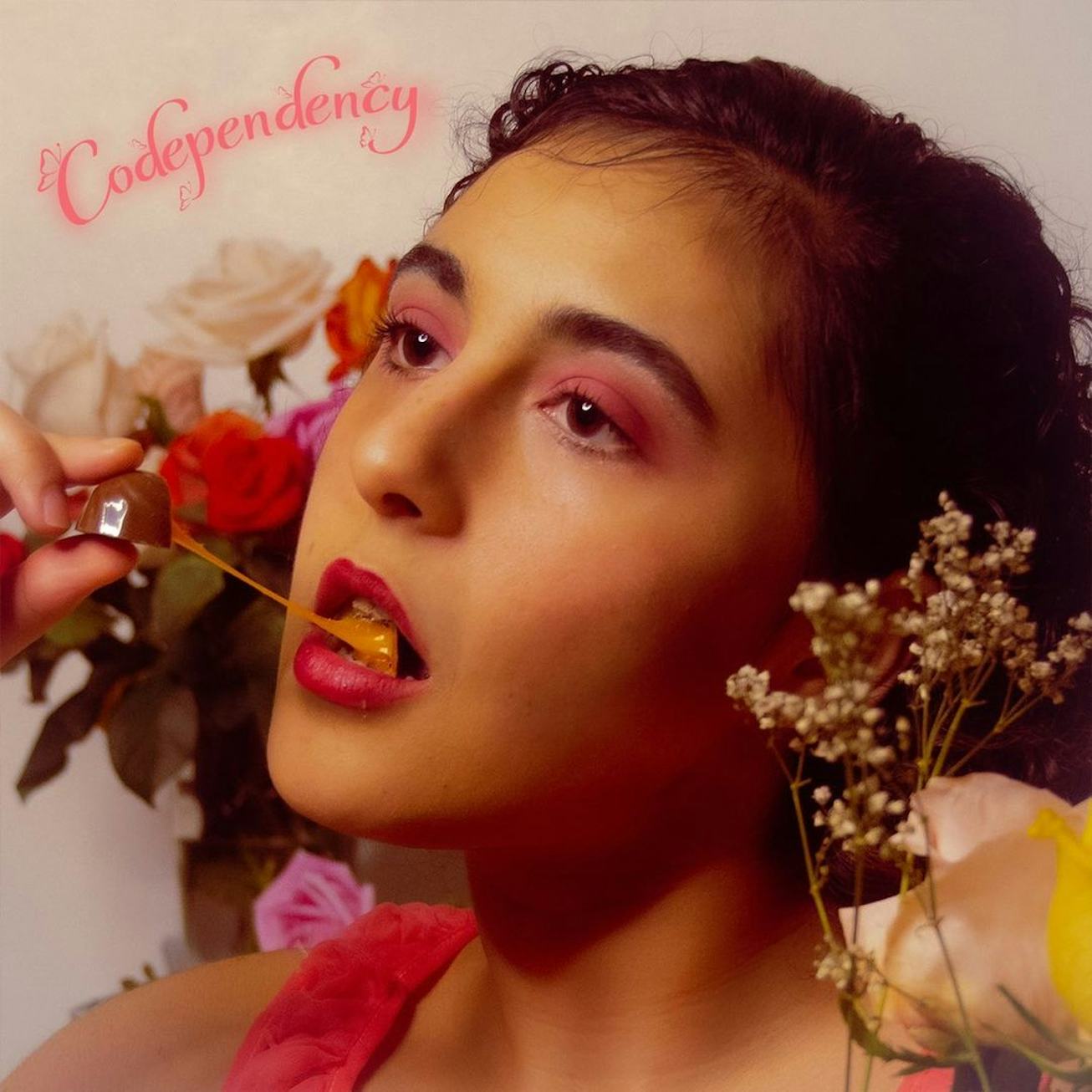
Entertainment
Sofia Dobrushin's "Codependency" Tackles Our Obsession With Self-Diagnoses
For the Brooklyn-based actor, director, and musical comedian, codependency isn't a diagnosis — it's a rallying cry.
In Sofia Dobrushin’s “Codependency,” being codependent isn’t a pathological personality flaw but a rallying cry. The Brooklyn-based actor, director, and musical comedian’s ballad, which premieres on NYLON today, is as smart and original as it is catchy, taking the stack of self-help books we have sitting on our nightstands and building something useful out of them; in this case, a song that celebrates our messy, often ridiculous humanity.
The video is a technicolor-dipped, ‘80s-inspired dreamland of violet and glitter hearts, informed by John Waters and public access dating show camp. In the video, Dobrushin, who uses she/they pronouns interchangeably, plays herself and hosts a dating show titled “Attached at the Hip” that goes haywire, to say the least.
“Codependency/ Stay in bed from 3 to 3/ Bed sores and monogamy/ The only way I want to be,” Dobrushin sings with a natural performer’s vibrato with a melody that plays on loop in your brain like the comforting, incessant reminder of sticky note affirmation on a mirror, backed by Dobrushin’s own close harmonies and light, glistening guitar from Evan Sites.
Dobrushin wrote “Codependency” in 2020 during a time when a lot of their friends were moving in with their partners during the pandemic. Dobrushin and their partner Matt Albani, who is also in the video, ultimately decided not to live together. (They do live together now.)
“My Cancer-cusp-Leo brain was like, ‘how do I rationalize this? So I bought like three self-help books: Attached, All About Love by bell hooks and Pleasure Activism. I haven’t finished one of those books,” Dobrushin tells NYLON. “I read the one chapter of Attached, where it was like, ‘Codependency is a myth’ and I was like, ‘oh my god what?’ And then I closed it and put it away and now I’m here. I hadn’t heard about codependency in a positive way of, maybe, you’re not crazy and have attachment issues, maybe you’re just not getting your needs met.”
Dobrushin produced the song alongside Sites in the winter of 2021 in a recording studio in their room, and shot the video around the same time with a group of their actor and comedy friends, including rising comedy and music stars Jes Tom, Gara, and Softee. While Dobrushin directed the video, their roommate Caroline Knight assistant-directed and edited alongside Dobrushin’s childhood best friend Gaby Sant’Anna, whom Dobrushin grew up filming sketches with. The video’s behind-the-scenes intimacy and conspiratorial silliness is as crucial to it as its aesthetic.
The real breakthrough moment, so to speak, of “Codependency,” isn’t the earnest acceptance of the flawed parts of our personalities; it’s the tongue-in-cheek, poking fun of our obsession with self-diagnoses at all. “Only child syndrome is my scapegoat for never taking any accountability,” Dobrushin sings in one line. “My therapist says it’s from my dead dog,” they declare in another, drawing out “eh” in “dead.” “But that’s not how my brain works/ Believe me I’ve tried/ I’ve read Pleasure Activism 45 times,” Dobrushin adds again at a particularly observant moment.
As much as we’d like to read a book or follow an Instagram account to figure out why we’re sad, it’s not that simple; we can’t blame our anxieties on being an only child or having a childhood dog die, and “Codependency” pokes fun at the very real school of thought that suggests reading Pleasure Activism makes you more self-actualized, something someone might want to tell the three separate people Dobrushin saw reading the book Jacob Riis beach last week.
“When I write comedy songs, it’s really when I’m just feeling a lot of things and music is easier for me to compartmentalize,” Dobrushin says. “It’s fun to have people come up to you and be like, I did not know this was something other people felt.’ You feel like you’re in an echo chamber and then it starts to resonate with people and you remember why you did it.”